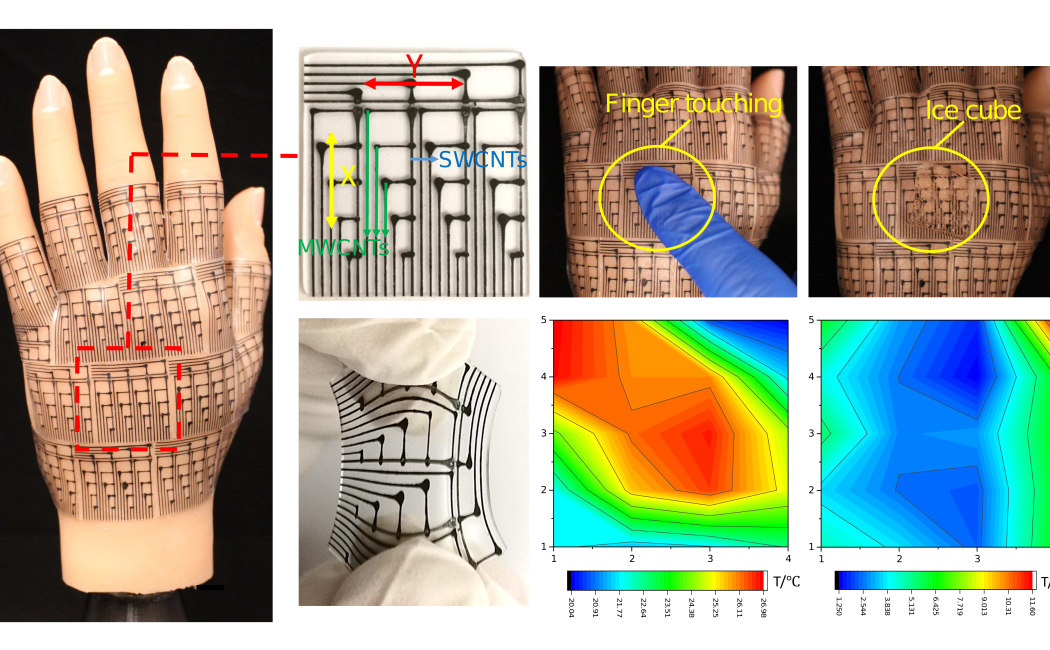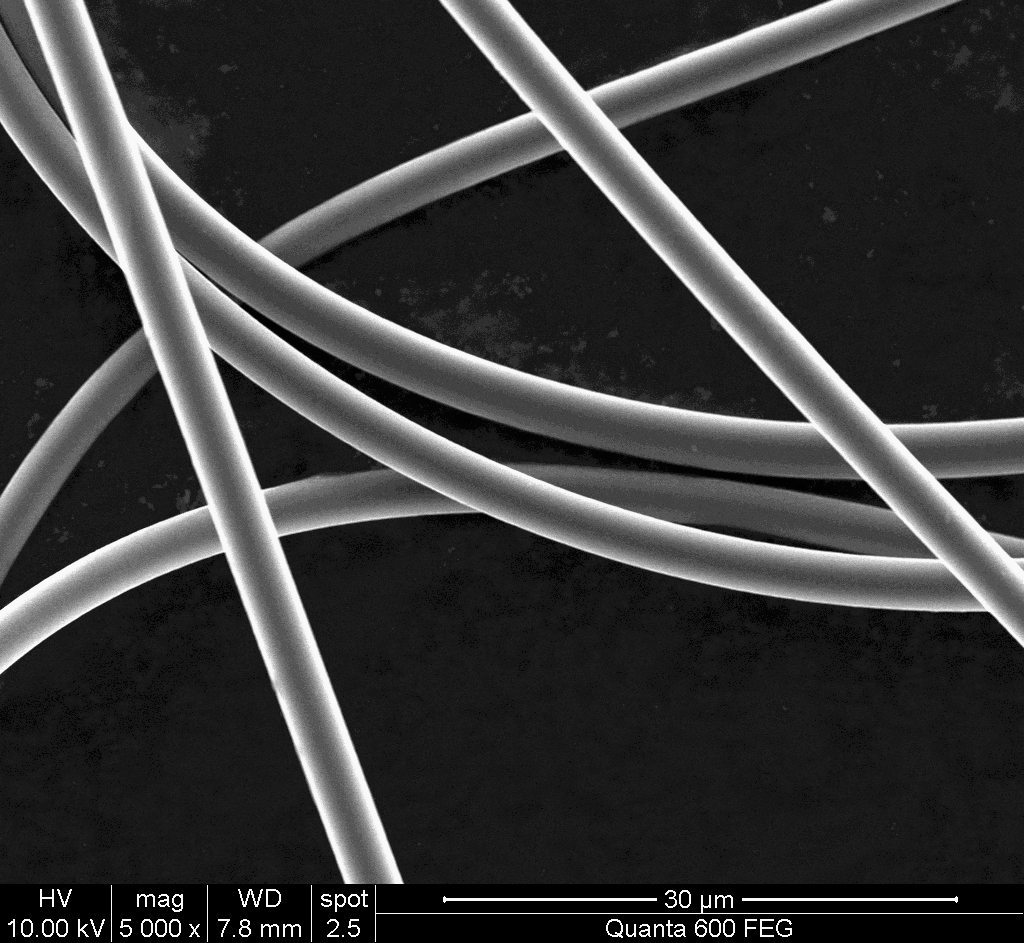


Conductive films, wires and fibers with improved conductivity are viable candidates for fabricating flexible electrodes, conductive textiles, and fast-response sensors and actuators. Improving mechanical properties of these films, wires and fibers is
also important so that they can be applied in fabricating wearable electronics with high durability for long-term usage. We develop conductive polymeric fibers produced by wet-spinning and solvent doping/dedoping that exhibit high electrical conductivity,
high current density, high tensile strength and Young’s modulus, good flexibility and stretchability, excellent electrical and mechanical stability. We apply these high-performance fibers for fabricating stretchable electrodes in electronic
circuit, wearable sensors for health monitoring, strain measurement, fast response wearable heating elements, low-voltage driven contractile actuators and multifunctional fiber-reinforced composites. The development of low-voltage driven actuators applies the
phase-transition principle to rapidly move the actuators in a specified
space. We also demonstrate that the assembly of these actuators is able
to lift sensitive items, such as food and toy products.

Researcher(s):
Former member(s):
Funding agency: KAUST Baseline